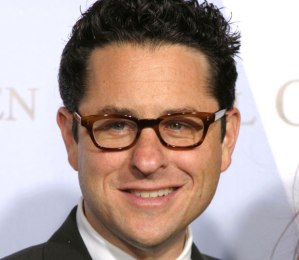A Mary Sue character, for those unfamiliar, is an idealized character in a story. It’s often a stand-in for who the author wishes himself/herself to to be. And importantly, real consequences don’t really apply to them.
CONSEQUENCES
Writers and critics alike tend to look down upon the Mary Sue, and for good reasons. The MS is all about wish fulfillment. Who doesn’t want to imagine themselves as The One, that person that’s special? The unique fella who discovers he’s actually a lost prince, or has a secret superpower?

Sue. Mary Sue.
Hell, I’m no different.
Any day now I expect an attractive young person to approach me and say, “This Starbucks was actually built as a test to see who could idle their time in the most ineffective manner possible. You’ve passed that test, and are therefore the Last Starfighter And Supreme Makeout Artist.”
So is wish fulfillment inherently bad? Well, no, not when it’s done right. For example, Harry Potter is the Boy Who Lived. “The Boy Who Lived”… they practically nickname him “The Mary Sue.” But they’re wonderful, beloved books.
Contrarily, why does the ancient, beautiful vampire desire the bland Mary Sue? Just ’cause. It’s inexplicable and there’s no ‘cost,’ for lack of a better word.
Why is Harry Potter different? Because his parents died. And magic. And it’s as much a curse as a blessing. And REASONS. Hell, Harry even asks “Why me?” and gets unpleasant answers all the time.

Picture: Neo
Harry’s still a Mary Sue, but a darned good one in a darned good series.
RELATABILITY
The other complaint is that the character isn’t relatable. I have less of a problem with this, mostly for reasons you can find here and here. Often, people who say they want “relatable” really mean they want to read reflections of their own flaws and the conflicts they face. Pain, more often than not.
Personally, I’d rather read about the Mary Sue. But moving on…
OUT OF CONTROL CHALLENGES
There’s another problem with the Mary Sue. One for the author, rather than the audience. The problem of out-of-control ramping goals.
With each successive… success, the writer has to find a new challenge for our walking deus ex machina. “Well, he saved the city by discovering he could fly at the end of the last book. What power does he need to suddenly have at the end of this book to make it fun?” And the challenge has to be bigger and bigger with every story.
Example: I LOVE the Mass Effect games. The story is about the very first human to join an elite space police-force.

Next up: Balancing the checkbook!
In the first game you have to save the citadel, the galatic hub of civilations. By the last game, you’re tasked with saving the entire galaxy.
Now there’s talk of a sequel.
About what, exactly? Saving the galaxy again? The universe? You blew your load a little early, Bioware.
Personally, I love me a good Mary Sue story. But unless you’ve considered the consequences, your story is going to be considered fluff by some people.
Give your protagonist consequences, some relatable characteristics, and if you’re planning on continuing the adventure, don’t write yourself in a corner.












